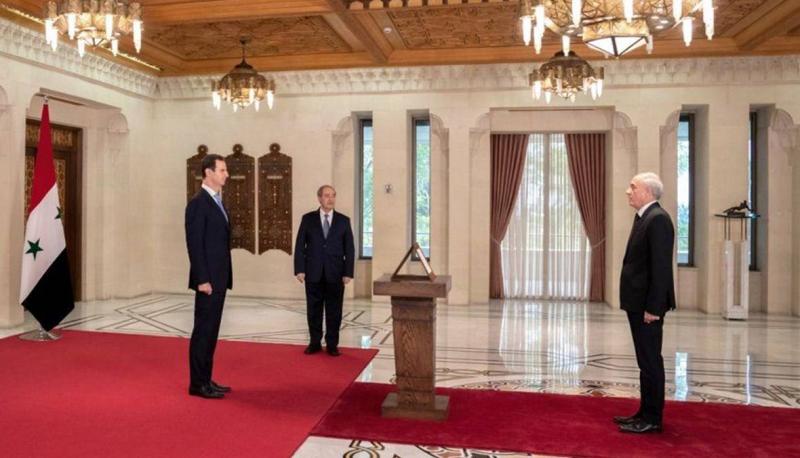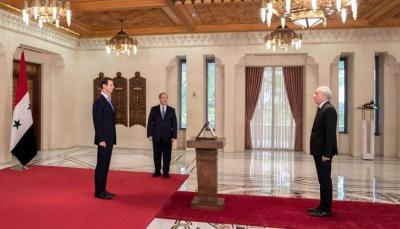The penultimate step in the normalization of Syrian-Saudi relations has taken place as Damascus has appointed Ayman Soussan as its ambassador in Riyadh, completing the diplomatic mission that settled in the Saudi capital about two months ago. This development follows several steps taken by the Syrian capital to address Arab discontent regarding the slowdown in implementing what was agreed upon in the Amman and Jeddah meetings that paved the way for Syria’s return to the Arab League. The only thing left for the completion of the normalization process between the two Arab states is for Saudi Arabia to make a similar decision to appoint an ambassador in Damascus after a break lasting nearly 13 years, which Syrian sources have confirmed will happen soon. Soussan took the oath of office on Wednesday before Syrian President Bashar al-Assad as the ambassador of the Syrian Arab Republic to the Kingdom of Saudi Arabia. The Syrian Foreign Minister Faisal al-Miqdad attended the swearing-in ceremony.
**Opening Up After Isolation**
This step concludes over a decade of a confrontational trajectory in Syrian-Saudi relations, stemming from the outbreak of Arab Spring crises in multiple Arab countries and the war in Syria in particular. This resulted in fissures in Arab relations due to varying interests and differing agendas and policies, leading Syria into a decade of political isolation as most Arab countries decided to withdraw their diplomatic missions from the Syrian capital. The rift between the two countries peaked in 2015 before stagnating for many months, only to be gently and slowly eased by the nature of international, regional, and Syrian developments. Since 2017, there have been several attempts to repair the relationship between the two capitals, yet these efforts were limited to holding security meetings between intelligence chiefs without resulting in notable outcomes; however, they were sufficient to melt the accumulated ice over the years.
**Normalization Path**
Efforts for normalization accelerated after the devastating earthquake that struck Syria on February 6, leading to al-Miqdad visiting the Saudi capital, before Saudi Minister Faisal bin Farhan reciprocated the visit to the Syrian capital. Afterward, Assad visited Riyadh twice: the first time to participate in the first summit between the two countries (Jeddah Summit on May 19) since 2010, and the second to attend the Arab-Islamic summit about Gaza a few weeks ago.
Despite this, the normalization process between the two countries has faced many setbacks that at times led to stalling, especially given disagreements over the non-implementation of agreements made in the Amman and Jeddah consultative meetings, which mandated Damascus to fulfill several demands, the most important being related to halting drug trafficking and working on the return of displaced persons. Given the political and security difficulties that hinder the implementation of any plans for the return of displaced persons or eradicating the phenomenon of drug trafficking, it seems that offering some political concessions has been the best way to ensure that the normalization process, which Damascus is heavily relying on to alleviate the acute economic crisis it is suffering from, does not come to a halt.




